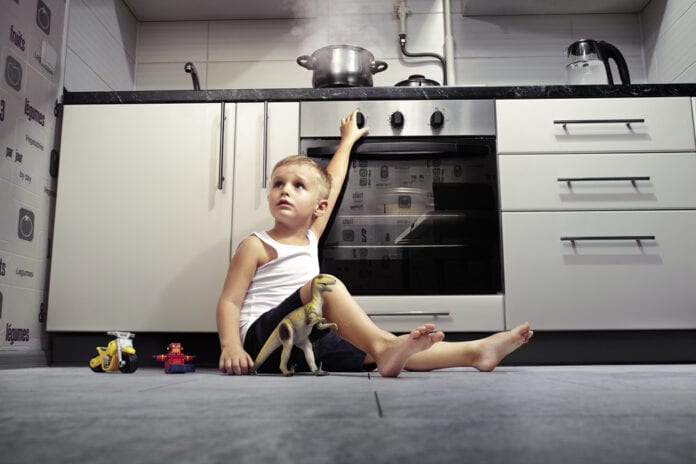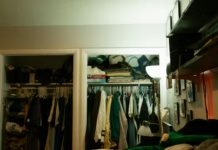No one would like to live in a house that consists of safety hazards, as it would only endanger the lives of its inhabitants. If your house has other damaged components including gas appliances, they can decrease the worth of the property too. Especially, if you’re a landlord, chances are your customers would turn away at first sight.
Whether you’re a house owner, a landlord, or a tenant, it’s your responsibility to get all of your owned accessories tested that they’re in working order. From house components to electrical appliances, get them checked by proper maintenance workers to conduct any repairs if any damage is seen. This includes the usage of all gas appliances, including the network of gas pipelines in your home.
Having an unsafe gas appliance is quite dangerous, as it can lead to gas leaks, explosions, carbon monoxide poisoning, etc. In order to avoid that and create a risk-free and safe environment for your family members, here are 5 gas safety tips you can follow:
1. Be Aware of Carbon Monoxide Poisoning Symptoms
Carbon monoxide can be very lethal when accidentally released into your home. Its unscented and non-visible appearance can often trick you. So, keep an eye out for its symptoms such as dizziness, headaches, nausea, and breathlessness. You can install CO detectors that help to detect carbon monoxide and smoke leakages. You will be immediately alerted if it does detect a leakage.
Other than symptoms, there are also other signs you can keep an eye out for such as: –
- Windows fogging up.
- The color of the flame on your gas nob changing to yellow or orange instead of the usual crisp blue color.
- Pilot lights blowing out frequently.
2. Getting Your Natural Gas Appliances Checked Over by Gas-Safe Engineers.
Another important safety tip is to make sure that all of your natural gas appliances are checked over by professional, licensed, and gas-safe registered engineers. Also known as a gas safety check. The whole purpose of conducting this safety check with the help of gas-safe engineers is to ensure that your natural gas appliances are working properly and are safe enough to keep in your home.
In the UK, it’s compulsory by law that all landlords get a gas safety check of their properties every year, in return for which they get a gas safety record. Gas safety certificates cost can range from £15 to £150, depending on the number of appliances checked.
What happens if you don’t get your gas appliances checked over? Here are some risks of unchecked gas appliances:
- Gas leakage: Gas leaks are quite dangerous as they can lead to accidentally starting fires and even explosions. That’s why if you can smell gas, you must immediately call your emergency service provider. As they can check whether there are any gas leakages in your home by conducting gas safety checks.
- Carbon monoxide poisoning: As discussed in the previous point above, it is a gas that can’t be seen and has no smell. That’s why you have to depend on its symptoms and signs to tell.
3. Remember the Whereabouts of Your Natural Gas Shut-Off Valve and How To Use It
It’s important to know and remember the location of your natural gas shut-off valve and how to use it in case of an emergency. If there’s a gas leak in your house from an appliance or one of your pipelines, a quick way to get out of trouble is to switch off the mains gas supply. Without knowing where your gas valve is, your house may become a time ticking bomb, as any small spark can ignite an explosion.
Besides remembering where your switch-off valve is, keep a set of handy tools such as a screwdriver or a complete toolbox for unexpected situations.
4. Keep Your Natural Fireplace and Chimney Clean
If you have a fireplace with a chimney, then it’s your responsibility to keep it clean and tidy. It’s been stated by the National Fire Protection Agency that fireplaces and chimneys should have annual checkups and professional cleaning sessions. You can clean it regularly yourself as well.
When you don’t get your chimney cleaned, a material called creosote starts to build up in the tube of the fireplace when it’s in use. This is a highly flammable substance that can cause dangerous chimney fires. In order to avoid that from happening, here are some tips that you can follow to keep your chimney and fireplace clean:
- By only burning seasoned wood with low moisture content, you can decrease the amount of creosote that builds up in your fireplace.
- Avoid the use of household cleaners for the cleansing of fireplaces as they may consist of flammable substances.
- To ensure proper airflow to the wood placed on the grate, clean out ashes regularly.
5. Step Out of Your Home if it Smells like Rotten Eggs
If your house begins to smell like rotten eggs, it’s a clear sign of gas leakage. Make sure to open all the windows and doors of your home, and leave your appliances on if they’re turned on, or leave them switched off if they’re off. If a switch is turned on or switched off at this time, it can cause a big gas explosion. Also, switch off the main gas valve of your home to prevent any further gas leaks. Call your area’s gas service provider to identify and safely resolve the issue.
Conclusion
A home is a place of shelter; however, it can lose that purpose if it consists of safety hazards. This includes looking, after all, gas-dependent devices, including pipes, fireplaces, and chimneys. Keep a lookout for symptoms of CO poisoning and observe if any signs of CO formation show up near your gas appliances.
Evaluate your gas devices from a licensed gas safety engineer to assure that the devices work properly and repair any damaged devices. If your fireplace has started covering up with ash and dirt, get it cleaned up. With the help of these gas safety tips, you can keep your inhabitants safe from any unexpected mishaps.

| [donate]
| Help keep news FREE for our readersSupporting your local community newspaper/online news outlet is crucial now more than ever. If you believe in independent journalism,then consider making a valuable contribution by making a one-time or monthly donation. We operate in rural areas where providing unbiased news can be challenging. |



















